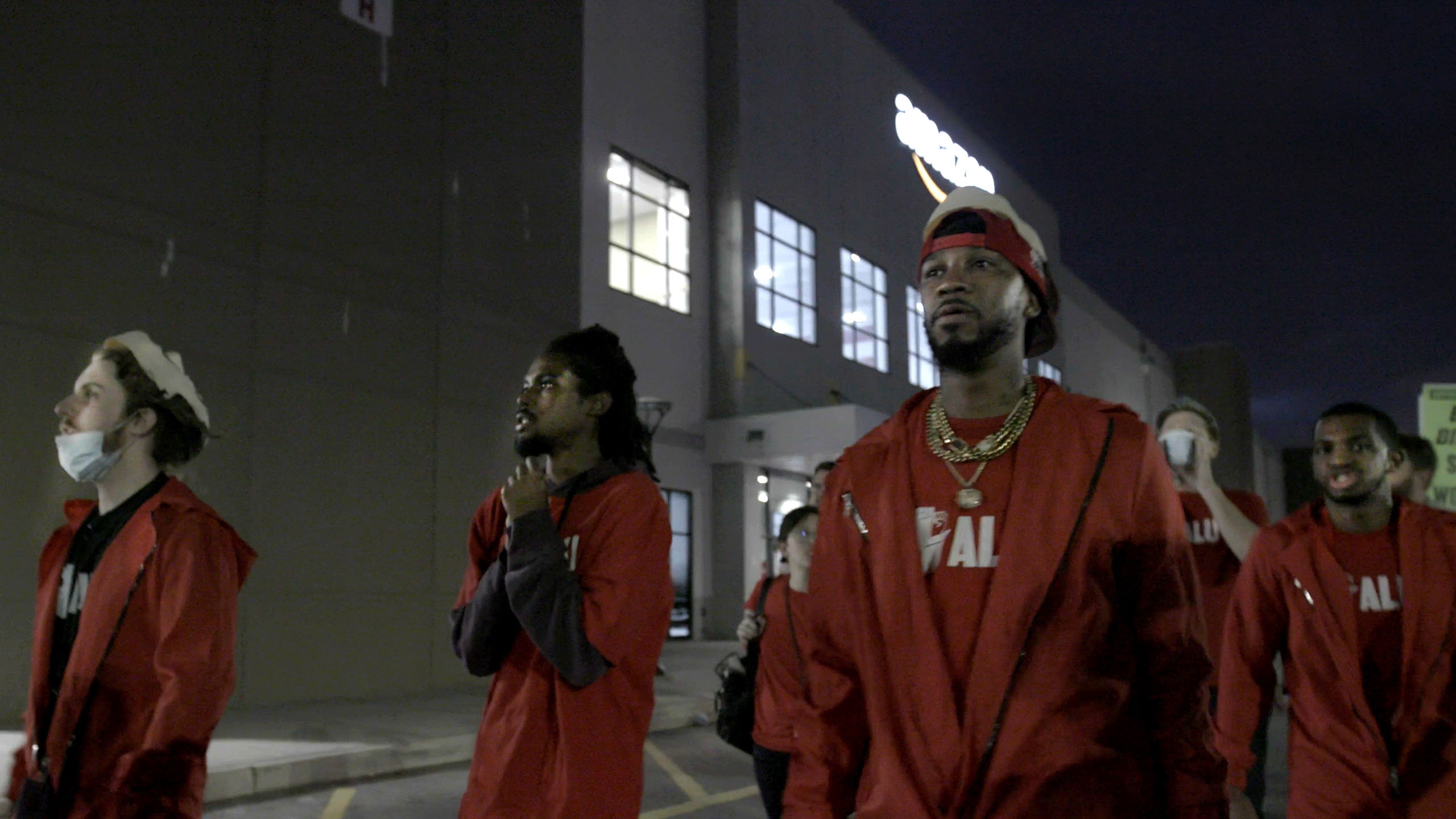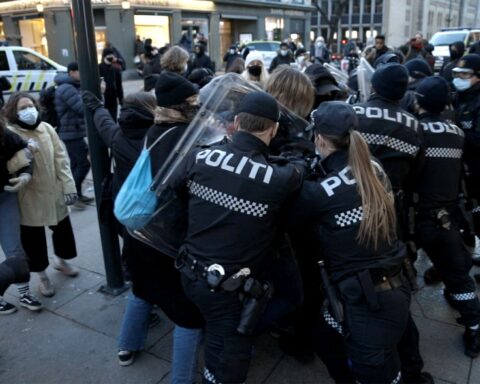Union
(USA, 102 min.)
Dir. Stephen Maing & Brett Story
Programme: U.S. Documentary Competition (World Premiere)
Back in 1994, in the early months of what was just then becoming known as the Internet, Jeff Bezos started an e-commerce bookstore from a garage in Seattle. Since that time, the company has become one of the largest corporations in history, changing in fundamental ways the landscape of purchasing, shifting the expectations of consumers for almost infinite selection delivered at lightning speed. It’s the stuff of silicon dreams, the American success story where a small idea gave rise to a company that would change commerce.
Yet behind every box and envelope, in ways not often contemplated by the of consumers who click the “buy now” button daily, there is a small army of individuals tasked with picking the products, preparing for shipments, and getting these purchases to your door. And while Bezos and his friends reap the benefits to the tune of billions, those individuals who fuel the system that makes Amazon flow struggle with paying their bills, holding onto their jobs, and, in some cases, even having a home to call their own between shifts.
Stephen Maing and Brett Story’s Union follows Chris Smalls and the other members of the Amazon Labor Union (ALU), a group made up of former and current employees from a Staten Island branch of the corporation’s logistic facilities. Smalls, a former manager at Amazon, gained a modicum of celebrity when he was fired for initiating the process of unionization. We witness as he struggles with the quotidian challenges of paying the bills and raising his kids, all while trying to keep momentum forward to seek out better working relationships at the facility. Camped outside in a tent by the bus stop, the organizers hand out leaflets and free burgers, securing signatures and forming a groundswell of support to see change occur.
We witness an all too common occurrence in circumstances such as these, where the shared desire to elicit change collapses into division when some successes are reached. The ease of comradeship when the only enemy is the corporation soon devolves into fractious discussions about how to move forward, particularly after a transition time when those who began the process are still in place when certain battles are won, and others convincingly lost.
At best, Union reminded me of the sublime film The Square, where we witnessed hopefulness devolve into factionalism over matters that were even more existential in scope. Yet it’s equally during these more complicated, nuanced moments that Union doesn’t quite succeed with the juggling act required, with different participants hinting at deeper divisions, but harder questions only superficially discussed, if at all.
Why aren’t the major unions attempting to assist in the organization? Who actually is supporting those doing the work of the ALU? For the latter question, a simple search after the fact shows that some supporting funds came from outside groups including the Omidyar Network, created by one of the founders of eBay, but there’s nothing within the film to address the fact that you have someone who made their fortune off one Internet mega-marketplace facilitating changes in a similar corporate sphere. While it’s obvious that a story like this could unravel when pulling at all these threads, these elements feel deliberately avoided for the sake of simplification, rather than doing justice to the nuances of the labour disputes we see taking place.
Yet despite these holes in the narrative, which distract from larger points being made, the film never devolves into a cheerleading exercise. The struggles of the workers are real, but we’re also granted intimate enough access to showcase these various contradictions of both mission and intent. While Amazon’s own behaviour comes across as draconian at best, and bullying and dehumanizing at worst, there are plenty of opportunities to showcase how the workers that the union is meant to support are hardly monolithic in their desires.
In many ways, Union does an excellent job of showing life on the frontlines of an increasingly revitalized labour movement. But given that the story is still very much being written, and the roadblock still being built steadily, it does feel at least narratively half-finished. Victories may prove to be pyrrhic at best, and worries that some of the organizers are more effective at creating moments of attention, rather than delivering results for their constituents, linger long after the credits roll.
At its heart this is a tale that reaches deeply into many facets of our current culture, from ideas about grassroots organization, the vagaries of late-capitalistic corporations, the political systems that both foster innovation and create struggles for frontline workers, and the consumers who choose to purchase products from marketplaces of scale that the likes of Amazon can provide.
The divide between the billionaire launching his phallic-shaped ship to space just to see what’s there for himself, versus the worker on his or her feet for hours with 30-minute breaks and pay that barely surpasses minimum wage, is pointed and profound. Yet beyond the financial gulf, there are myriad questions and concerns, from the role of technology that is used to monitor productivity. The latter will, with inevitability, result in vast numbers of those same workers being replaced by robotic automata like we see skating during the film’s opening scenes. What does the future hold for the truck drivers in an age where automated driving will become a thing? Will the unionized police force used to arrest trespassers see their own numbers increase as social unrest becomes more necessary for those left behind as foundational economic structures continue to shift under our feet?
Union may only hint at these many forces, but it manages to both focus intently on this small group while also provide context for larger questions outside the scope of what we’re witnessing. Some, no doubt, will find hope in what they see, others will be even more distressed not only by the state of corporate greed, but by the jargon and behaviour of those purporting to be on the side of their fellow workers.
The film may provide the beginnings of a conversation, just as the actions of the ALU may be the start of much larger actions of social justice. But given the current political discourse, the impending election, the shifts in post-COVID demand and the ensuing economic fluctuations, it’s hard to feel optimistic based on what we see here. Yet as implied in its very title, Union may show that power of togetherness, where collectivism and cooperation are still able to be David to Amazon’s Goliath. Time will tell how this battle plays out. Whether the spirit of comradeship is deep and lasting, or merely the stuff of anti-establishment naïveté, remain to be seen as the deeper processes of the current economy do their own work.














